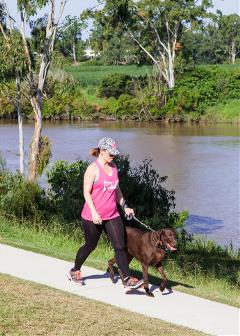Pressure or discomfort in a woman’s pelvic area that’s often made worse with physical activities such as prolonged standing, jogging or bicycling could be a sign of a prolapse, says Dr Philip Hall, consultant gynaecologist at St Stephen’s Hospital in Hervey Bay.

“Pelvic organ prolapse happens when muscles and ligaments in the pelvic floor are stretched or become too weak to hold the organs in the correct position,” Dr Hall said.
The Director of St Andrew’s Pelvic Medicine Centre, Brisbane, will be talking about prolapse and other women’s health issues, as well as incontinence in both men and women, when he visits the Hervey Bay Neighbourhood Centre on Monday 18 July from 6pm to 8pm.
Dr Hall said prolapse was often referred to as “dropped bladder’” or “fallen uterus” and affects millions of Australian women.

“The variety of causes includes pregnancy and childbirth, menopause, obesity, pelvic tumors, chronic coughing, neurological conditions and genetic factors.”
“But women don’t have to live with pelvic organ prolapse – it can be treated in several ways depending on its nature and severity.”
Guests (males and female) at the community presentation are invited to stay for a cup of tea or coffee afterwards when they can meet Dr Hall in person.
Dr Hall has a special interest in pelvic floor medicine and reconstructive surgery. He has been involved in rural women’s health for 30 years but also treats men with urinary and faecal incontinence.
What: Meet Dr Philip Hall, Director of St Andrew’s Pelvic Medicine Centre, Brisbane, and consultant gynaecologist at St Stephen’s Hospital, Hervey Bay.
Where: Hervey Bay Neighbourhood Centre, 22 Charles St, Pialba
When: 6pm to 8.30pm, Monday 18 July